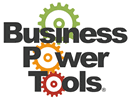“A CEO should spend 100% of their time raising money…
and the rest of their time running the company!”
I don’t know who said that, but it seems true enough. Raising capital can often feel like, and in many cases is, a full-time JOB. You can spend a large portion of your day networking, making phone calls, chasing down investors, setting up and attending meetings, and jumping though hoops. Nobody ever said it was going to be easy did they!
While securing capital for your company is vitally important, it is just as critical for you to simultaneously keep at least one eye (but, preferably two) on running and building your business. While you may or may not raise capital in the short or mid-term, your business will certainly keep moving forward and thus requires your attention.
Maintaining focus on the growth and profits of your venture should remain a priority for a few reasons.
First, investors usually have no incentive to make a final investment decision quickly. They have the money, you want it. It’s almost human nature for them to take their time before giving you a go or no-go decision. Investors also have a fiduciary responsibility to do their due diligence, a step which can drag on and on at times. Even after waiting through the lengthy due diligence period, the deal may still fall through. In either case, while you are waiting on the investor to move forward your business may stagnate or suffer. A situation that is no good for anyone.
Second, by moving your business forward, you are playing hard (or harder) to get with the investment community. No one wants to enter a relationship with someone who is desperate, in this case for the investor’s cash. By continuing to stay focused on building your company, you are clearly demonstrating to investors that you are not desperate for their capital (even if this is not completely true). One other benefit, by not appearing desperate, you are creating a stronger negotiating position for yourself and making it clear to all parties that you are willing to walk away from a bad deal.
Finally, if you become too absorbed in raising capital, your business may regress a bit, and at the moment of truth, your investor turns to you and says, “You know, the business has slipped; we need to recalculate my shares…” Now you are in a bad situation that is getting worse. While the deal may be worse, you may have no choice but to take it anyway. Yuck.
Henry Ford said, “Hustle while you wait.” (One of my all-time favorite quotes) You will most likely spend quite a bit of time waiting while raising capital. However, if you let that go and get busy with what matters – building your business – you will feel better about yourself, have a firmer grasp on your company’s future, and become an even more desirable investment opportunity for investors.
Your secret weapon that builds your business!
 BizPlanBuilder writes a professional business plan for your project quickly and efficiently. Its organized system of pre-scripted sample business plan templates in Microsoft® Word, flexible Excel financial models, and PowerPoint presentation example can be downloaded as an app or accessed online where you can collaborate with your team and advisors. Windows / Macintosh.
BizPlanBuilder writes a professional business plan for your project quickly and efficiently. Its organized system of pre-scripted sample business plan templates in Microsoft® Word, flexible Excel financial models, and PowerPoint presentation example can be downloaded as an app or accessed online where you can collaborate with your team and advisors. Windows / Macintosh.
It’s the fastest and easiest way of turning your ideas into an investment-grade business plan and a successful company. BizPlanBuilder also supplements the “business model canvas” and “lean start-up” ideas to give investors the details they want before writing you a check.
It’s the funding leader evolved and vetted over 30+ years through thousands of deals with banks, SBA lenders, angel investors & venture capitalists worldwide.









This unfortunately is a common error. I work with companies of all sizes and in numerous industries. People will often ask me how to acquire more capital or how to market their product more efficiently – all while forgetting that often the biggest affecter of their bottom line (and also their liability) is their employees. Failure to properly determine employee status (hourly vs. contract vs. salaried exempt vs. salaried non-exempt), overtime miscalculations, tax miscalculations, failure to develop a benefits plan that is ERISA compliant, failure to control unemployment insurance costs, failure to plan for work-place safety, failure to have OSHA required written programs, etc. All of these can lead to costly fines, distractions at work, disgruntled employees, and even business closure.
Properly setting up these often mundane HR related functions can be the difference between a successful and smooth running company and one that has distractions, inefficiencies, and an unclear direction.
If you are an employer, you must look at the WHOLE picture and not just the snapshot that gives you an immediate emotional feeling of success.